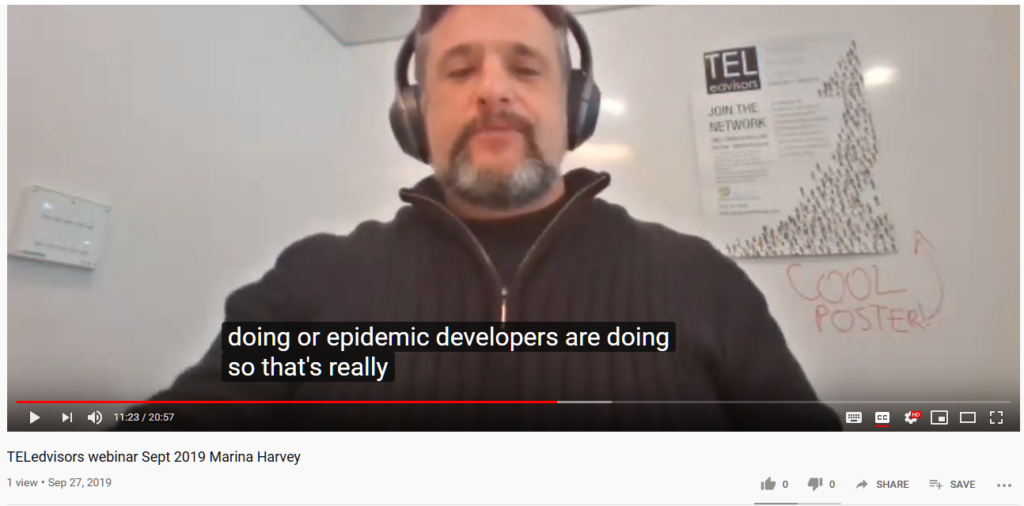
I ran a webinar for the ASCILITE TELedvisors network on Thursday, with a focus on Academic Developers. One of the things that I’m enjoying most about the research process is the way that it lets you put the existing research literature and your own ideas to the test.
Of the three broad edvisor types that I believe reasonably sum us up (Academic Developers, Learning Designers, Education Technologists), it seems that ADs are the most clearly defined. I’d suggest that this is because they are almost entirely academic roles, which makes it much easier for ADs to undertake research relating to their work. One of my go-to references has been the International Journal of Academic Development. I’ve never come across a journal for educational technologists.
Based on the literature, my experiences and those of my colleagues, I’d say that one of the biggest barriers to effective collaboration between edvisors and academics is the academic/professional divide. I’d characterise this as an underlying tribalism that comes from a sense of one side not really understanding the drives and day to day experiences of the other. At its worst there can be an element of snobbery at play but for the most part it seems to come from Higher Ed culture that has customarily been relatively siloed and ‘us and them’.
All of the presenters noted that they felt that by holding an academic role as ADs, academic teaching staff were more likely to take their advice seriously. When I asked what professional staff might do to earn this kind of relationship of trust, most of the answers were variations on a theme of spending 1-1 time with academic teaching staff and demonstrating your knowledge. Which I appreciate but at the same time, this seems to have significant limitations.
Another recurring idea was that academic teaching staff will respond more to advice about teaching and learning when it is tied to evidence based research and theory. I can see the value of this and I wonder if there is a case for more effective use of it when it comes to the dissemination of institutional learning and teaching initiatives in particular. Part of me does wonder though, whether this creates an escape clause for some of the less engaged academic teaching staff who might just pick holes in the theory to justify not doing something they had no interest in doing in the first place. But maybe that happens anyway. And maybe worrying about the worst cases at the expense of the greater population isn’t that helpful.
One more area that I think the academic/professional divide is manifested is within edvisor circles. While all the presenters seem respectful of edvisors in professional roles, there did at times seem to be a gap in understanding of the depth of the pedagogical knowledge and skill of learning designers and education technologists. One of the aspects of my research that I’m hoping will shed more light on this is exploring the way that edvisor units are organised in institutions. Whether ADs work alongside LDs and ETs or whether they are all separate. I have a feeling that we lean towards the latter and that this can lead to these understanding gaps. The fact that we had representatives of two AD only communities of practice that there is a strong sense of operating in a specialised domain. (Though I have noticed similar gaps between LDs and ETs at times, in professional roles).
I’ll be very interested to see if there are differences in the levels and types of collaborations based on organisational structures. I think I need to explore organisational theory a little more deeply here – it’s moving away from education to an extent but I suspect that it might be enlightening. Do you have any suggestions about this? Leave a comment (if commenting works) or say hi on twitter – I’m @gamerlearner
